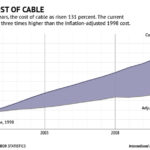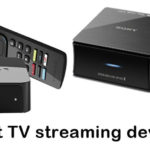AT&T Inc.’s shrinking traditional TV subscription and wireless phone businesses continued to take a toll on the giant’s financial performance in the latest period.
The Dallas-based company has made a big push in media and entertainment as its core wireless business stalled.
Acquisitions of new companies
Already the largest domestic pay-television operator following its acquisition of satellite company DirecTV, AT&T is trying to buy Time Warner, owner of CNN, HBO and the Warner Bros. film and TV studio. The deal, under regulatory review, is expected to close by year’s end.
AT&T said the number of subscribers to its video services fell by 89,000 in the quarter ended Sept. 30, as customers abandoned its fiber-optic-video and satellite-TV services. The decline, the third quarterly drop in a row, came despite 296,000 new accounts on its DirecTV Now service, which streams channels over the internet. DirecTV Now ended the quarter with 787,000 subscribers.
Losses keep growing
The country’s No. 2 wireless company posted a net loss of 97,000 postpaid phone subscribers, those who are billed monthly and tend to be more profitable. Analysts surveyed by FactSet had projected a loss of 126,000 phone subscribers. Including other devices, AT&T added 117,000 postpaid wireless customers. The company ended the quarter with 138.8 million U.S. wireless subscribers.
Competition taking a bigger bite
Verizon Communications Inc., the largest domestic carrier by subscribers, last week said it had added 603,000 postpaid wireless connections in the third quarter.
Meanwhile, T-Mobile US Inc. said Monday it had added 1.3 million subscribers in the third quarter, including 817,000 postpaid subscribers.
Cancellations keep growing
The monthly cancellation rate — or churn — for mainstream wireless customers, edged up to 1.07%, from 1.05%, driven by cancellations among tablet users. Looking at phones alone, the cancellation rate was 0.84%, compared with 0.90% in the year-ago quarter.
Overall, third-quarter profit fell 9% to $3 billion, or 49 cents a share. Excluding merger and integration costs and other items, profit was 74 cents a share.
Revenue fell 3% to $39.67 billion. Excluding lost business because of hurricanes and earthquakes, revenue would have been $39.8 billion, the company said.
Analysts surveyed by Thomson Reuters had projected profit of 63 cents a share, or 75 cents as adjusted, on $40.10 billion in revenue.
The company’s Latin American operations helped improve those results, adding $6.05 billion in operating revenue, up 13% from a year earlier, driven by the Mexican wireless business.





